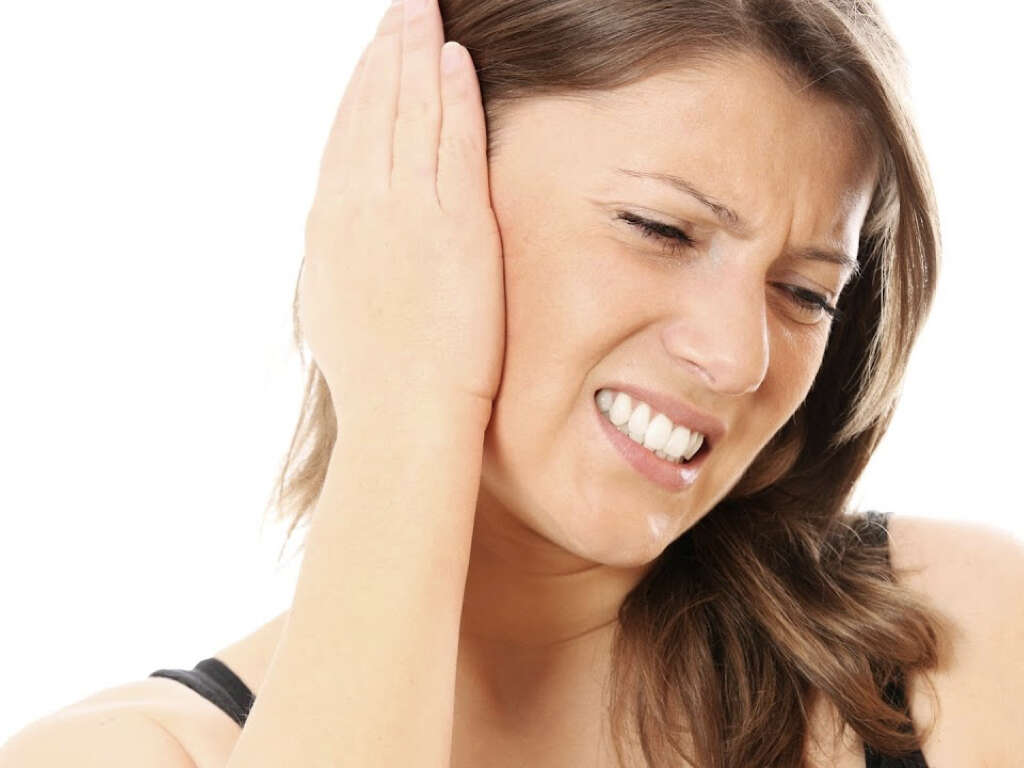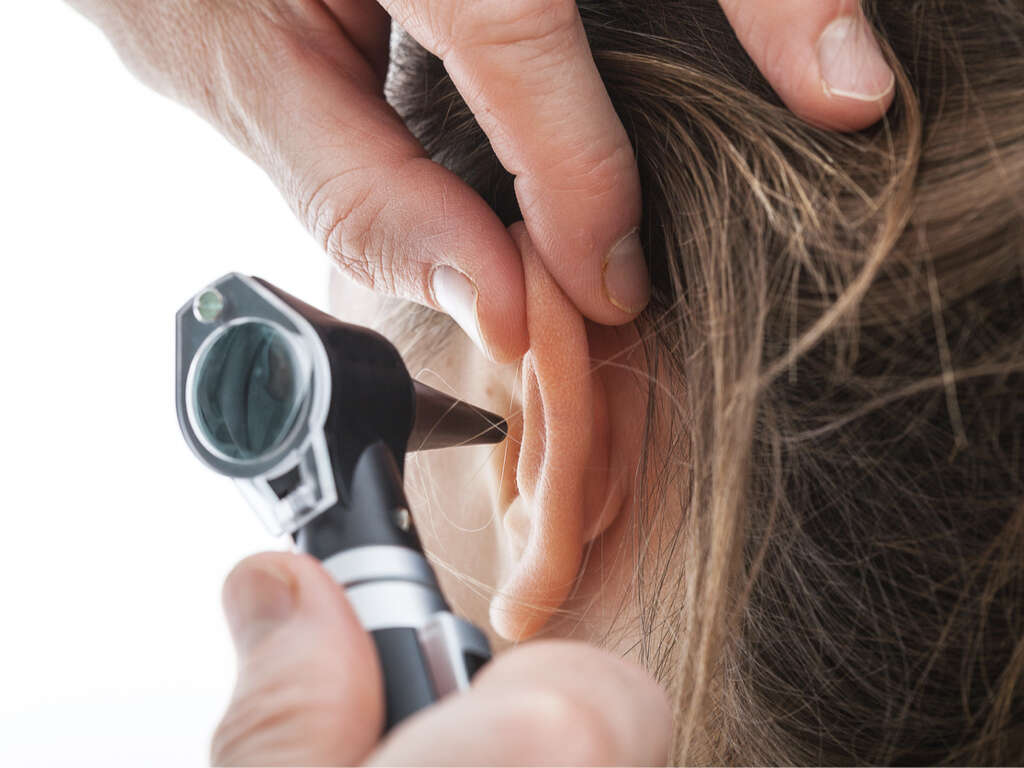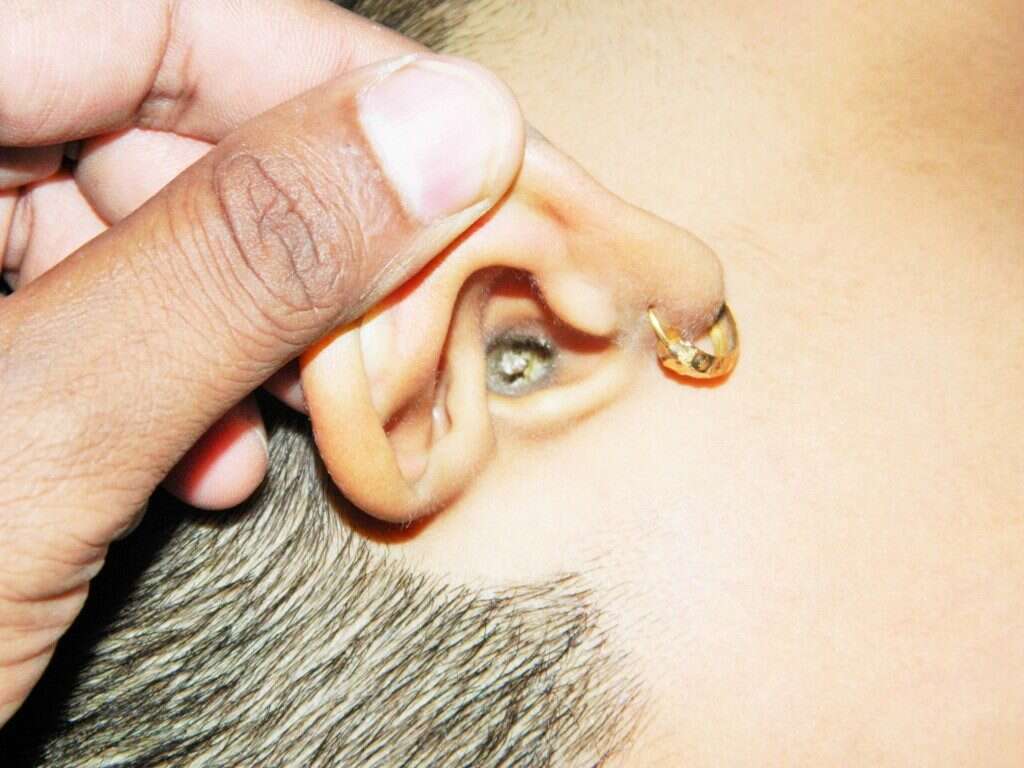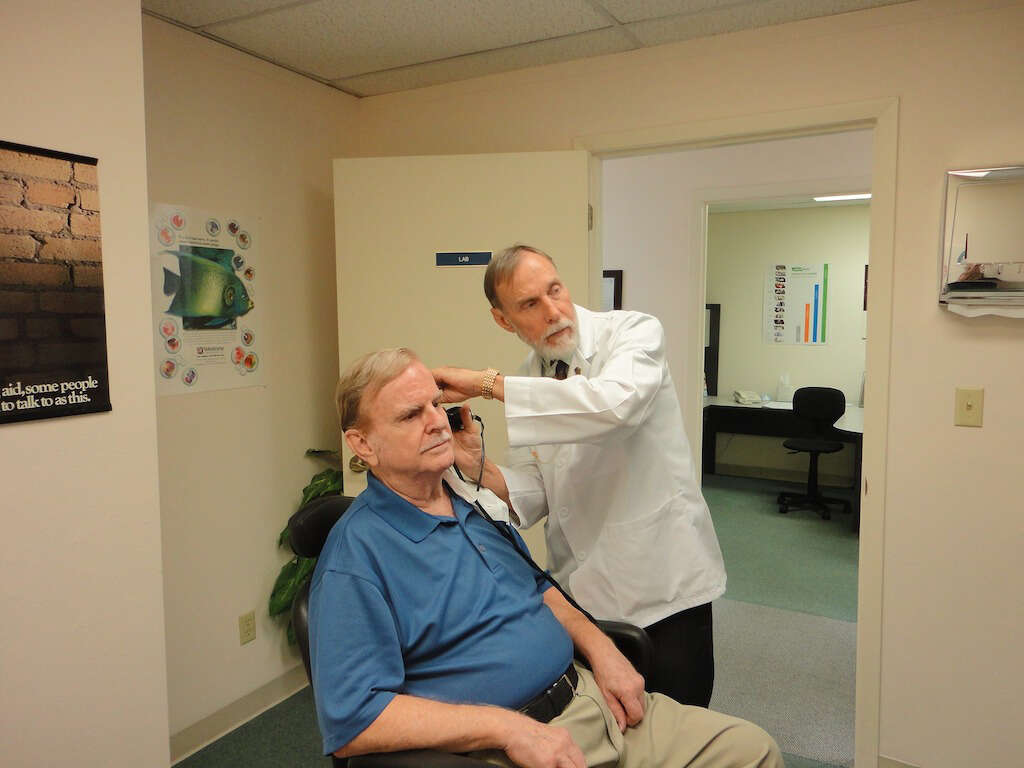10 Symptoms of a Acoustic Neuroma
An acoustic neuroma or vestibular schwannoma is a slow growing and noncancerous tumor that originates from the Schwann cells of the vestibular nerve (8th cranial nerve). Since the vestibular nerve influences the hearing and balance, pressure from the acoustic neuroma can result in many symptoms. The term “acoustic neuroma” is a misnomer as the tumor arises from the Schwann cells of the vestibular division of the vestibulocochlear nerve. It is estimated that about 2,000 to 3,000 cases are diagnosed in the United States annually.
Some studies have shown that the incidence has been increased throughout the years (which may be due to advances in magnetic resonance imaging scanning). It is mostly diagnosed in those between the ages of 30 and 60, with both men and women to be equally affected. While most acoustic neuromas spontaneously occur, one risk factor includes the rare genetic mutation of neurofibromatosis type 2.
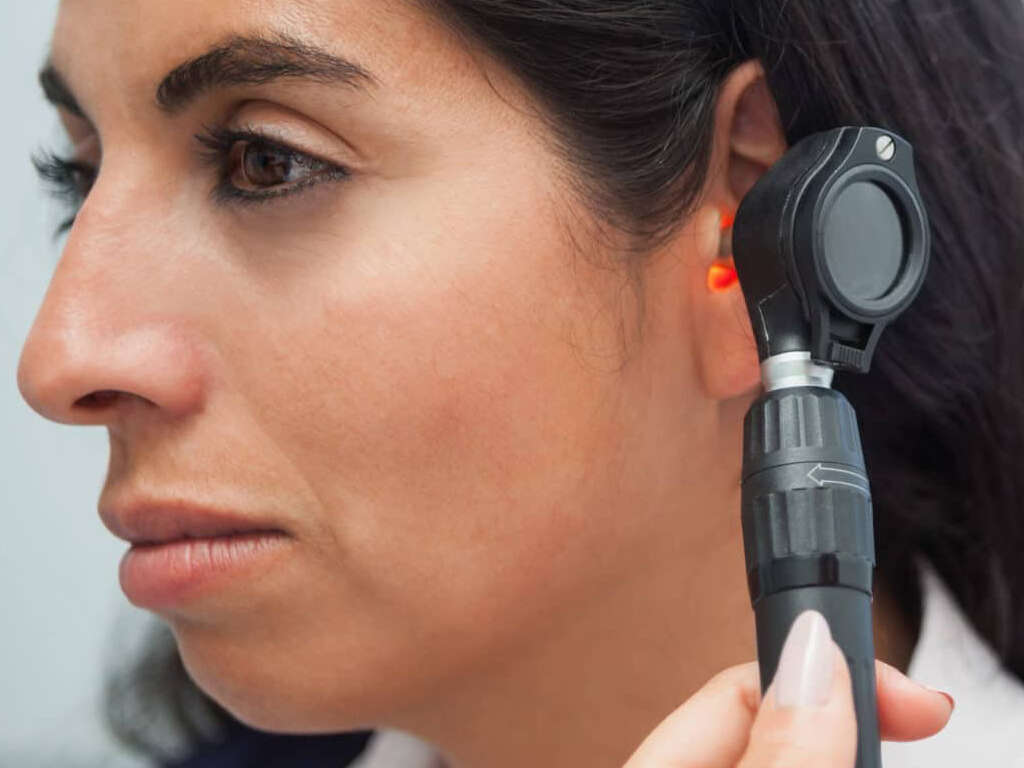
Symptom #1: Hearing Loss
Hearing loss or hearing impairment occurs when there is decreased ability to inability to hear. It may occur in one or both ears. Hearing loss is important especially in children as it can affect the ability to learn language while in adults, it may lead to work related difficulties. In older people, hearing loss can lead to loneliness and depression.
Hearing loss can occur in aging, exposure to loud noises, birth complications, ear trauma, and as a side effect of medications. It is also the main symptom reported by patients with acoustic neuroma.

Symptom #2: Tinnitus
Tinnitus or ringing of the ears refers to the perception of sound when no external sound is present. While ringing is a popular way to describe the sound, some patients have also reported different sounds such as clicking, hissing, roaring, and buzzing. The sound can be low pitched or high pitched, soft or loud, and be present in one or both ears.
While most patients are able to cope with tinnitus, in some cases, it can also cause anxiety, depression, and interference with concentration. Common causes of tinnitus include brain tumors, Meniere’s disease, ear infections, emotional stress, head injury, and earwax. It is also one of the main symptoms seen in patients with acoustic neuroma.

Symptom #3: Vertigo
Vertigo refers to the state where the patient feels as if the environment or objects around them are spinning or swaying when they are not. Vertigo can be associated with difficulties completing daily activities, nausea, vomiting, and sweating. It may worsen when one moves the head. It is a common symptom and can be seen in conditions such as Meniere’s disease, benign paroxysmal positional vertigo, labyrinthitis, brain tumors, brain injury, stroke, migraines, and multiple sclerosis.
It is also a symptom seen in patients with acoustic neuroma. Patients experiencing vertigo should lie down and rest instead of trying to perform activities as this can lead to falls and further injury.

Symptom #4: Pressure in the Ear
Pressure in the ear can be described to be as plugged ears, stuffy ears, or a feeling of fullness in the ears. This may be associated with discomfort, pain, muffled hearing, and dizziness. This feeling can also be felt if there is a eustachian tube blockage, change to higher altitude, and earwax.
Patients who are unable to unclog their ears using home remedies should see a doctor to determine if further treatment is needed. Those diagnosed with an acoustic neuroma may require microsurgical removal or radiation of the tumor to reduce or improve the symptoms.

Symptom #5: Headaches
A headache refers to pain that is felt anywhere in the region of the head or neck. There are many types of headaches such as migraines, tension type headaches, and cluster headaches. It is a very common and non-specific symptom that can be seen in many situations such as hypoglycemia, hunger, dehydration, stress, inadequate sleep, and viral infections.
Headaches can usually be managed using painkillers such as paracetamol (acetaminophen) and non-steroidal anti-inflammatory drugs (NSAIDs) like ibuprofen, diclofenac sodium, and naproxen sodium. In acoustic neuroma, headaches that recur are uncommon and tend to only occur in larger tumors. Headache may also be due to increased intracranial pressure.

Symptom #6: Facial Numbness
In acoustic neuroma, involvement of the trigeminal nerve can lead to intermittent or constant facial numbness or tingling. The trigeminal nerve can be divided into three branches on each side of the face: the ophthalmic, maxillary, and mandibular nerves.
While the first two are purely sensory, the mandibular nerve supplies both motor and sensory functions. Facial numbness or tingling is usually felt on the side of the face affected by the acoustic neuroma.

Symptom #7: Facial Weakness or Paralysis
While rare, if the acoustic neuroma involves the facial nerve, it can lead to facial weakness or paralysis on the side that is affected by the tumor. The facial nerve functions to control the muscles of facial expression and of taste in the anterior two thirds of the tongue.
When there is facial weakness or paralysis, facial movements such as smiling and eating can be difficult. Patients who are affected may drool and dribble when drinking or eating.

Symptom #8: Dizziness
Dizziness refers to the impairment of spatial perception and stability. It is a broad term where it can be used to refer to presyncope, light headedness, disequilibrium, or vertigo. It can be caused by inadequate blood supply to the brain, loss of visual cues, disorders of the inner ear, side effect of drugs, or distortion of brain or nervous function.
Examples include Meniere’s disease otitis media, acoustic neuroma, migraine, pregnancy, heart attack, anemia, hypoglycemia, anxiety, and depression. It is a common symptom where an estimated 20 to 30 percent of the general population experiences dizziness in one year.

Symptom #9: Unsteady Gait
The human gait describes the normal locomotion of the movement of the limbs. The human gait can also be described to be the biphasic bipedal propulsion of the body. The human gait can be categorized as natural or trained. Examples of trained gaits include specialized gaits used in martial arts and hand walking.
The three main regions thought to regulate gait are cerebellar locomotor region, mesopontine tegmentum locomotor region, and spinal cord locomotor region. An unsteady gait can be seen in those with disruption of equilibrium, loss of visual cues, and more. It is therefore a symptom that can be seen in patients with acoustic neuroma.

Symptom #10: Confusion
Confusion is a term that can be used interchangeably with delirium where there is loss of ability to place oneself in the correct location, time, and identity. This loss of orientation can sometimes be accompanied by altered conscious states and memory loss.
Confusion can occur in dementia, alcoholism, anxiety, brain tumor, brain injury, concussion, dehydration, fatigue, fever, heat stroke, and hypoglycemia. It is also a symptom that may be observed in patients with acoustic neuroma.





